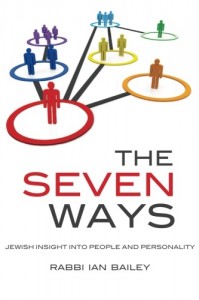Deja Vu: Guest Post by Rabbi Danny
5 Short Lines, Then Longer Version
The Gra writes that the events that happened to the Forefathers are parallel to the events that happened to the nation of Israel later.

Lavan parallel Egypt, because just as Yaakov lived temporarily in Lavan’s oppressive home, so did Israel live in the oppressive nation of Egypt.
As tough as it is to bear, often times being in stressful or oppressive situations can refine our skills or behavior[1]. We hope that our time in exile has refined us to be better people.
May we follow the models that Yaakov and Israel lay out, and be settle down in the Holy Land and celebrate in Jerusalem.
Rabbi Danny
Now the full version….. —————————————————————————————————————————–Why do I Feel Like this Happened Before?
One of the most puzzling sections of the Seder must be the part where we forget about Egypt for a moment and start discussing Yaakov’s swindling father-in-law Lavan. We even say that Lavan was worse than Pharaoh in that Lavan tried to wipe out the entire fledgling nation, whereas Pharoah only aimed at killing the males.
Why are we taking the spotlight off of Pharoah and turning it on Lavan? In fact, the Mishna says that, in order to properly fulfill the commandment of recounting the story of the Exodus, we must elaborate on the sentences that deal with Lavan! The halacha itself  dictates that this is an integral part of the story we must tell Seder night.
dictates that this is an integral part of the story we must tell Seder night.
There is a very important Torah concept that “the Forefathers map the course for the children with their actions”, which we usually take to mean that we can and must take out important lessons for our present historical situation based on how the Forefathers handled similar situations. Thus, Avraham’s relationship with Yishmael becomes the template for our dealings in politics in the Middle East, and Yaakov’s dealings with Esav show us how to deal with the living under Edom’s/Western rule.
However, he Vilna Gaon (Gra) takes this concept one step further, and helps us answer out initial concundrum. Not only do we look to the Torah to find the frameworks for our current situation, but even later parts of the Torah find their roots in earlier sections of the Torah. He says that Yaakov’s sojourn in Lavan’s house was the “action of the Forefather” hat made the map for the exile in Egypt.
Just as in Egypt G-d brought 10 plagues upon the Egyptians by means of a staff, so too did Yaakov thwart Lavan’s trickery 10 times with the help of his crafted rods. Just as in the Exodus the Jews brought out with them all of the gold and silver of Egypt, so too Yaakov left Lavan after having won from him his vast flocks of sheep. When Yaakov left Lavan it says he and his family ran away for three days, after which Lavan found out and chased them, finally catching up with them on the seveth day. This exactly parallels what happened in Egypt leading up to the Splitting of the Sea.
 Lavan, in turns out, is really the archetype whose actions wrote the script, so to speak, which was to be played out by Pharaoh and the Jewish people. There is no more fitting way to start our Exodus talk. Just as Lavan pressured and tried to swindle Yaakov, which made him stronger and more capable in the end, so did the “crucible of Egypt”[2] refine Israel to make it into a better nation.
Lavan, in turns out, is really the archetype whose actions wrote the script, so to speak, which was to be played out by Pharaoh and the Jewish people. There is no more fitting way to start our Exodus talk. Just as Lavan pressured and tried to swindle Yaakov, which made him stronger and more capable in the end, so did the “crucible of Egypt”[2] refine Israel to make it into a better nation.
May the Jewish people escape trouble and persecution, just as Yaakov escaped Lavan, and may we be able to settle down in our land and celebrate soon in Jerusalem.
Rabbi Danny [1] Please note that I am not claiming that all suffering necessarily has a goal or positive goal, nor is all suffering a Diving mandate to send us specific messages. [2] See Ramban, Introduction to Exodus.